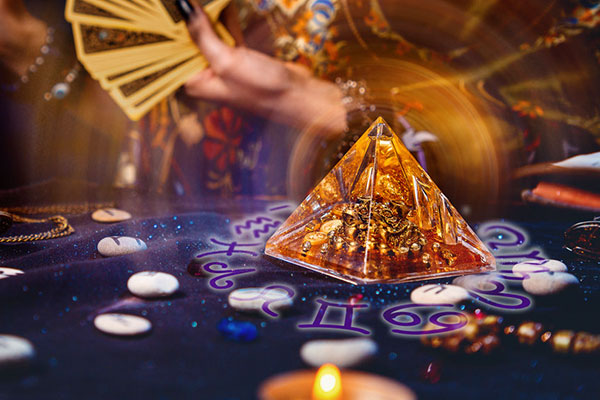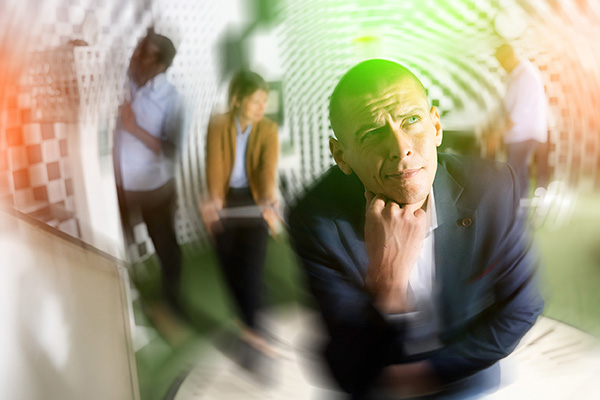skepticism
Living Your Best Life With Lady Luck!
 Are you closely acquainted with Lady Luck, or is she a stranger to your life?
Are you closely acquainted with Lady Luck, or is she a stranger to your life?
To be lucky, or not, depends on your personal view on luck. If you see luck as being pure chance and something you have absolutely no control over, then this will become your reality experience.
Should you, on the other hand, see luck as that moment when opportunity and careful preparation finally come together, then this should have a massive impact on how much good luck you receive in your life!
Search your memory for the last time you bought a lottery ticket and what went through your mind when you did? Did you just put it away, not think about it and tell yourself that you never win anyway?
Were your thoughts on something else, or did you conjure up some images as to how great it would be when you take your prize home? Hardly surprising what the outcome was, is it?
No, I am not suggesting you rush out and buy a load of lottery tickets and have blind faith that one, at least, will win big time, as that would also be the road to ruin. I am, however, suggesting that you try to adopt a more optimistic mind set as to what you can expect to attract into your life.
Our very beliefs define the energy frequency at which we vibrate and this, in turn, creates our attraction point. In simple terms, it is incredibly hard to attract good luck if you feel that you do not deserve it, or it is just downright impossible.
A Psychic Reading Brings Order To Chaos
 In a typical lifetime the sun will pass over us twenty-five thousand times. If you were to walk just one mile due west each and every day of your life (if such a journey by land were possible) your life would end at the place it began.
In a typical lifetime the sun will pass over us twenty-five thousand times. If you were to walk just one mile due west each and every day of your life (if such a journey by land were possible) your life would end at the place it began.
Just one mile every day, at a most comfortable stroll, you will have experienced more than anyone, and lived the dreams of most. Instead of merely waiting and watching the sun and time pass by.
If we walk slowly through life, but with purpose, we will see more, travel farther on less energy, and allow others more time to get out of our way. But occasionally, we will meet immovable objects in our path, and a decision on which way to turn must then be made.
Having a precise destiny in mind is challenging in itself, so making the right decisions along the way is essential to ensure our safe arrival at our intended destination.
In my own journey, I remind myself to smile demurely at those skeptical of what I do, even if their cynicism always surprises me, as we all foresee the future all the time.
For example, watching a carefree child at play, unaware in the midst of their joy of the likelihood, the inevitability of a fall sometimes becomes apparent and very clear to those with experience looking on.
The fact that some of us are able to see more, and in more detail, and further into the future, should therefore not be so impossible to conceive – as disconcerting or uncomfortable as this may be to the doubter.
Letting Go Of What No Longer Serves You
 Letting go is never simple or easy, but it’s often necessary for our health, happiness, and spiritual growth. It’s a powerful act that frees our soul and honors our true essence.
Letting go is never simple or easy, but it’s often necessary for our health, happiness, and spiritual growth. It’s a powerful act that frees our soul and honors our true essence.
Letting go is about releasing what no longer serves us to create space for more joy, peace, abundance, and meaningful experiences to flow our way. It’s not about loss or sacrifice – it’s about making room for something better.
By letting go, we deepen our connection to our Higher Self, Spirit, and the Divine. We release the burdens that limit us, allowing us to step into our best life.
It’s a conscious choice to stay stuck or move forward. This means choosing to let go of negative thoughts, emotions, desires, habits, beliefs, or material things that hold us back. When we release these attachments, we open the door to new blessings, miracles, and personal growth.
Choosing to let go and taking the first steps can sometimes feel daunting. It’s normal to feel overwhelmed, but trust that each step you take to release the old and welcome the new brings you closer to peace, joy and lasting fulfillment.
As we release old patterns, we often feel lighter, more energized, and at peace. This newfound freedom allows us to explore new possibilities, pursue our passions, and live authentically. It’s not about forgetting – it’s about freeing ourselves from what holds us back and stepping into the full light of our true potential.



